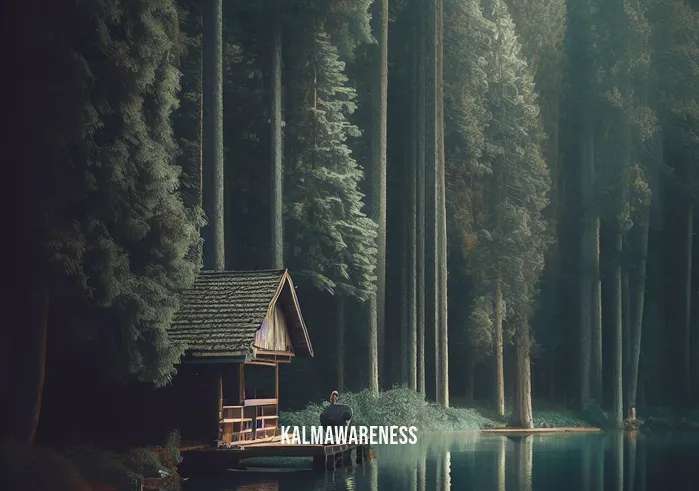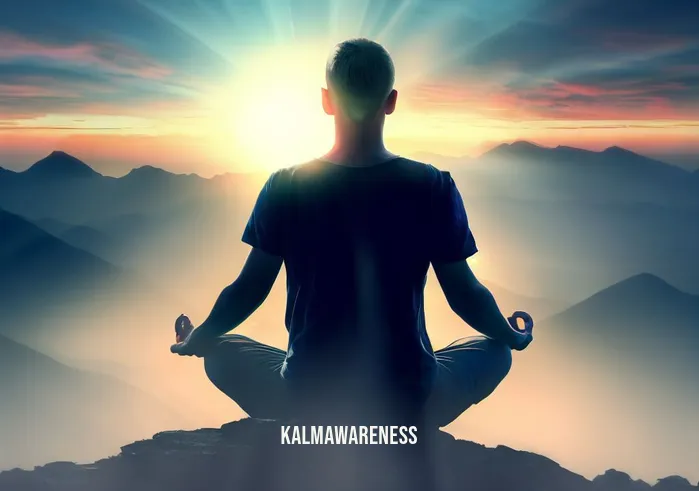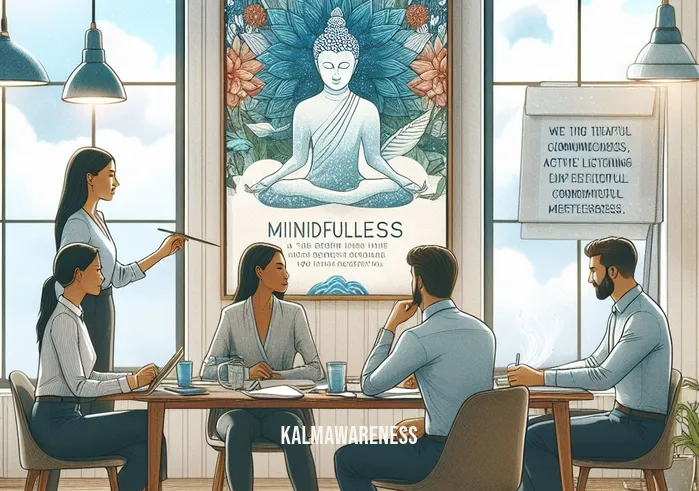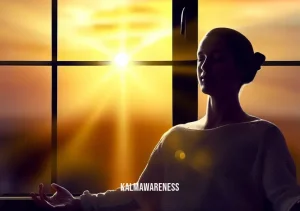The Nature of the Mind: An Intricate Tapestry of Consciousness and Cognition
The enigma that is the human mind has intrigued thinkers, philosophers, and scientists for millennia. As we stand on the precipice of a new era of understanding, it’s paramount to grasp the foundational aspects of the nature of the mind, especially in relation to consciousness, cognitive processes, the mind-body connection, self-awareness, and inner exploration. This journey will be navigated with the aid of several key insights and resources, each of which adds another layer to our comprehension of this complex topic.
Understanding Consciousness: Reflecting on Life’s Mirror
At the heart of our existence is consciousness – a stream of awareness that helps us make sense of our surroundings. The analogy beautifully presented in the article, “Life is Like a Mirror”, elucidates how our perceptions and reflections guide our interpretations of the world around us. The mirror isn’t just an external tool but is emblematic of how our mind processes and reflects upon experiences, linking our inner and outer worlds.
The Mind-Body Enigma: Beyond Physicality
The age-old debate, “Are we our body or our mind?” finds its voice in the discussion “I am not the body, I am not even the mind”. This exploration paves the way for understanding the intricate mind-body connection and the realization that our essence might be more profound than the physical confines of our body. Recognizing this helps us transcend mere physiological processes and delve into the cognitive underpinnings of our existence.
Neural Pathways: Where Mind and Brain Intersect
The tangible organ – the brain, and the intangible entity – the mind, often appear as two sides of the same coin. Through the concept of neuroplasticity and the power of mental force, we realize that our thoughts and experiences can reshape our brain’s structure and function. This dynamic relationship underscores the potential of our thoughts, beliefs, and intentions in influencing our reality.
Emotions, Relationships, and Cognitive Processes
The mind’s intricate workings aren’t just limited to self-awareness but also play a pivotal role in our interactions. Mindful relationship habits emphasize the significance of being present in our connections, while practices like the mirroring activity therapy underscore the importance of empathy and understanding in fostering healthy relationships. Emotional intelligence, as highlighted in discussions about emotional curiosity, serves as a testament to the mind’s multifaceted nature.
Breathing, Meditation, and Inner Exploration
The pathway to understanding our mind invariably involves the practices of breathing and meditation. These are not merely exercises but profound tools for inner exploration. Jack Kornfield’s meditation for beginners provides a gentle introduction to this journey. Furthermore, techniques to connect to one’s higher self through meditation or exploring the notion of the galactic chakra offer deeper insights into our spiritual and cognitive dimensions.
In conclusion, the nature of the mind isn’t a singular concept but a tapestry of various elements. From the foundations of consciousness and the mind-body relationship to the depths of cognitive processes and the avenues of inner exploration, each aspect provides a glimpse into the mind’s profound nature. As we embark on this enlightening journey, the subsequent segments promise to delve deeper, unraveling the mysteries that lie within and around us. Eager for a deeper exploration? Continue reading as we further unravel the intricacies of our existence in the next segment.

Nurturing the Garden of the Mind: Deepening Our Comprehension
The multifaceted nature of the mind remains one of humanity’s most intriguing puzzles. While our previous exploration touched upon the foundational aspects of this vast expanse, it’s time to delve deeper into the layered intricacies that shape our understanding. Just as a gardener meticulously cares for each plant in their garden, understanding and nurturing our mind requires detailed attention to its many facets.
Exploring the Cognitive Landscape
Our cognitive abilities extend beyond mere thought processes. These abilities act as the software running on the hardware of our brains. Diving into the deeper strata, we find:
- Embodied Cognition: How our physical experiences and interactions shape our thoughts. The insightful perspective shared in the article, Embodiment and the Inner Life, sheds light on this concept.
- Emotional Resilience: Building mental toughness through practices like finding the space to lead helps one face challenges head-on.
- Mindful Awareness: Achieving a heightened state of consciousness requires practice and patience. Techniques like being skillfully aware offer a path to attain this.
- Inner Connection: Tapping into the core of our being, understanding practices like astral projection help explore the depths of the mind.
Deciphering the Mind’s Intricacies: A Tabular Insight
To better understand the various components that constitute the mind, let’s take a structured approach. Here’s a table that outlines some core facets, their definitions, and corresponding resources for a deeper dive:
| Facet of the Mind | Brief Definition | Recommended Reading |
|---|---|---|
| Emotional Regulation | The ability to manage and respond to emotional experiences. | He Does a Body Good |
| Cognitive Flexibility | Adapting one’s thinking in response to diverse stimuli. | Name it, Tame it, Reframe it |
| Inner Alignment | Balancing the heart and mind for optimal functioning. | Brain and Heart Coherence |
| Mindful Nutrition | The influence of diet on mental well-being. | The Belly Rules the Mind |
| Deep Meditation | Techniques to profoundly connect with oneself. | Cultivation Meditation |
The Vital Role of Consciousness in Personal Growth
Consciousness isn’t merely about being awake; it’s about being awakened to our potential, strengths, and areas of improvement. By delving into deeper states of consciousness, one can access unparalleled insights and foster personal growth. As Jon Kabat-Zinn aptly puts it in his piece, “No Matter Where You Go, There You Are”, understanding our mind is a journey of recognizing our constant presence and the power it holds.
In conclusion, the nature of the mind is akin to an enigmatic ocean with depths yet to be charted. As we venture further into its vastness, the horizon broadens, and we’re introduced to newer facets and wonders. With this enhanced understanding, we are better equipped to navigate the challenges and joys of life. Intrigued about what’s beyond this horizon? Our exploration intensifies as we venture deeper into the recesses of the mind in the upcoming segment. Stay with us, and continue reading to discover more treasures hidden within the labyrinth of human consciousness.

Hope Within the Mind: Tapping into the Wellsprings of Inspiration
The human psyche, in its profound depth, is not just a repository of thoughts and memories. It’s a fertile ground where seeds of inspiration and hope sprout. By diving deeper into the nature of the mind, we uncover tales of resilience, transcendence, and unwavering spirit that can serve as beacons of hope in our own journeys.
Stories of Triumph: Real-life Encounters
A touching narrative that emphasizes the transformative power of the mind is the experience shared in Meditation. Here, individuals from various walks of life detail how they wrestled with personal challenges. Meditation, as a tool, equipped them to tap into the latent strength within their psyche, ultimately leading to personal metamorphoses. Such accounts are a testament to the incredible resilience and adaptability inherent in our mental fabric.
Moreover, the insightful discourse on connecting to one’s higher self through meditation underscores how an inward journey can lead to an enriched understanding of oneself and the universe. This connection serves as an infinite source of inspiration, illuminating the path even during the darkest times.
Voices of Wisdom: Quotations that Resonate
Throughout history, scholars, thinkers, and visionaries have reflected on the profound nature of the mind, leaving behind words imbued with wisdom:
“The mind is everything. What you think you become.” – Buddha
“The mind is not a vessel to be filled, but a fire to be kindled.” – Plutarch
“The true sign of intelligence is not knowledge but imagination.” – Albert Einstein
“One small positive thought in the morning can change your whole day.” – Dalai Lama
“Your mind is a powerful thing. When you fill it with positive thoughts, your life will start to change.” – Unknown
Each of these quotes serves as a potent reminder of the boundless possibilities that lie within the recesses of our minds. They urge us to think, dream, and hope, propelling us forward even in the face of adversity.
The Nexus of Curiosity and Inspiration
Curiosity, a natural facet of our cognitive processes, often acts as the ignition for inspiration. The journey detailed in Finding the Space to Lead exemplifies this. The protagonist’s inherent curiosity about the mind’s potential led them down a transformative path, culminating in personal and professional success. By fostering our innate curiosity and coupling it with resources that elucidate the intricacies of the mind, we open doors to boundless inspiration.
Nurturing a Mindful Perspective
By embracing practices that promote mindfulness, such as those elucidated in Skillfully Aware, one not only gains clarity but also becomes receptive to the myriad inspirations the universe has to offer. Being present and mindful amplifies our connection to the world, allowing us to draw inspiration from even the most mundane experiences.
In summation, the nature of the mind, in all its complexity, is a perennial source of inspiration. As we have journeyed from understanding its foundational concepts to uncovering tales of hope, the path ahead beckons with even more profound insights. Eager to see what’s next in our exploration? Join us as we delve further, uncovering the transformative potential of the mind and its limitless expanse in the next segment. Stay curious, and continue reading!

Deconstructing the Tapestry: An Analytical Gaze at the Nature of the Mind
As we continue our exploration into the intricate maze that is the human mind, it becomes apparent that each thread in this tapestry holds significance. Just as a mosaic consists of individual pieces that contribute to a larger image, so too does our understanding of the mind. By breaking down its elements, we can appreciate its overall composition better. Let’s deconstruct some of these pivotal elements for a clearer grasp.
Key Components of the Mind
Conscious Mind:
- The aspect we are most familiar with.
- Processes our daily activities and immediate surroundings.
- Influenced by external stimuli and immediate experiences.
Subconscious Mind:
- Stores memories, beliefs, and past experiences.
- Influences habits, behaviors, and emotions.
- Can be accessed and modified through practices detailed in Skillfully Aware.
Unconscious Mind:
- Houses deep-seated memories, often forgotten or suppressed.
- Influences our behavior, choices, and reactions in ways we’re not immediately aware of.
- The realm of dreams and deep-seated beliefs.
Cognitive Processes: The Gears of Thought
Perception:
- The act of sensing the world around us.
- Filtered through our beliefs and experiences.
Attention:
- The ability to focus on specific stimuli or experiences.
- Involves both voluntary and involuntary mechanisms.
- Deepened through practices like cultivation meditation.
Memory:
- Storage and retrieval of information.
- Consists of short-term and long-term components.
- Can be influenced and enhanced through intentional practices.
Reasoning and Decision Making:
- The ability to solve problems and make choices.
- Influenced by past experiences, current emotions, and future aspirations.
- A balance of intuition and logic.
Emotions and their Role in the Mental Orchestra
- Joy: Often stemming from positive experiences or memories. An essential component for well-being.
- Sadness: A natural response to loss or unmet expectations. Can lead to growth and empathy when processed healthily.
- Fear: A primal emotion, often ensuring survival. Can be restrictive when excessive.
- Anger: A reaction to perceived injustice. When channeled right, can lead to positive change.
Mind-Body Synergy: The Dance of Dualism
Understanding the interplay between mind and body is essential. The profound concept shared in “He Does a Body Good” delves into how physical health and mental well-being are intrinsically tied. A harmonious mind-body connection:
- Promotes overall health.
- Enhances cognitive abilities.
- Elevates emotional well-being.
By deconstructing the intricate elements that comprise the nature of the mind, we’ve managed to gain insights into its holistic functioning. This endeavor, akin to a jigsaw puzzle, reveals how each fragment, no matter how minuscule, plays a part in creating the grand picture of our cognitive universe.
As our journey reaches its pinnacle, the final chapter awaits, promising a culmination of all that we’ve discovered and explored. Eager to see the complete picture of this intricate mosaic? Join us in the concluding chapter, where we piece together the myriad fragments of the mind’s vast expanse. Continue reading to witness the grand finale of our exploration.

The Mind’s Mosaic: Reflecting on Our Exploration
As we come to the conclusion of our intricate journey into the nature of the mind, it’s evident that the expedition has been nothing short of enlightening. The mind, often compared to an enigma wrapped in layers of mystery, has revealed some of its profound secrets, and as with any meaningful quest, there are insights gained and lessons learned.
Key Revelations
- The mind is not just an organ but an orchestra, harmonizing various cognitive and emotional processes.
- Our mental state, deeply interwoven with our physical well-being, creates the symphony of our existence.
- Every emotion, thought, and sensation contributes to the intricate tapestry that forms our personal narratives.
Drawing inspiration from Connect to Higher Self Meditation, we realize that true knowledge of the mind’s nature extends beyond cognitive functions. It involves connecting with the deeper self, fostering a relationship of understanding and empathy with our inner being.
A Refreshing Outlook
The mind’s vastness is not daunting; rather, it’s a canvas waiting to be painted with experiences, memories, and aspirations. And as we have unraveled in our explorations:
- There’s hope in every corner, inspiration in the most unexpected places.
- Embracing practices like meditation and mindfulness can amplify our connection to the world and to ourselves.
- The beauty lies in the journey and not just the destination.
Your Next Steps
Equipped with these insights, the real journey begins now – the application of this knowledge in the theater of life. Whether it’s practicing mindfulness in daily activities, delving deeper into meditation, or simply being more attuned to your emotional responses, the paths to explore are boundless.
For those eager to continue this exploration:
- Dive into our detailed guide on astral projection and expand your understanding of the mind’s potential.
- Explore the harmonious dance of the heart and brain in Brain and Heart Coherence.
A Note of Gratitude
Thank you, dear reader, for embarking on this enlightening journey with us. The intricacies of the mind, with all its beauty and complexity, have been a joy to explore alongside you. Rest assured, the voyage doesn’t end here. Our commitment to bringing you more insightful content remains unwavering. We invite you to revisit previous sections whenever you seek clarity or simply wish to rekindle the sense of wonder.
As you move forward, remember the words of Socrates: “To know thyself is the beginning of wisdom.” Let this be the guiding light in all your endeavors. Until next time, stay curious and keep exploring!





